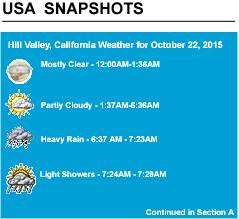Donald Trump has just been elected as US president, as a Republican climate skeptic. So if you are from the US you may get the impression that this is a political debate between “lefties” who think climate change is real and “righties” who think it isn’t. But it’s only in the US that there still is a political debate at all. Here in the UK for instance it has cross party support, and we have a right wing government who have just ratified the treaty. For us, it was a matter for debate a decade or two ago, but the debate was already over some years back. We've decided action is needed, and there were many things we could have done, but the main thing was to do something, and the Paris agreement was what they came up with.





